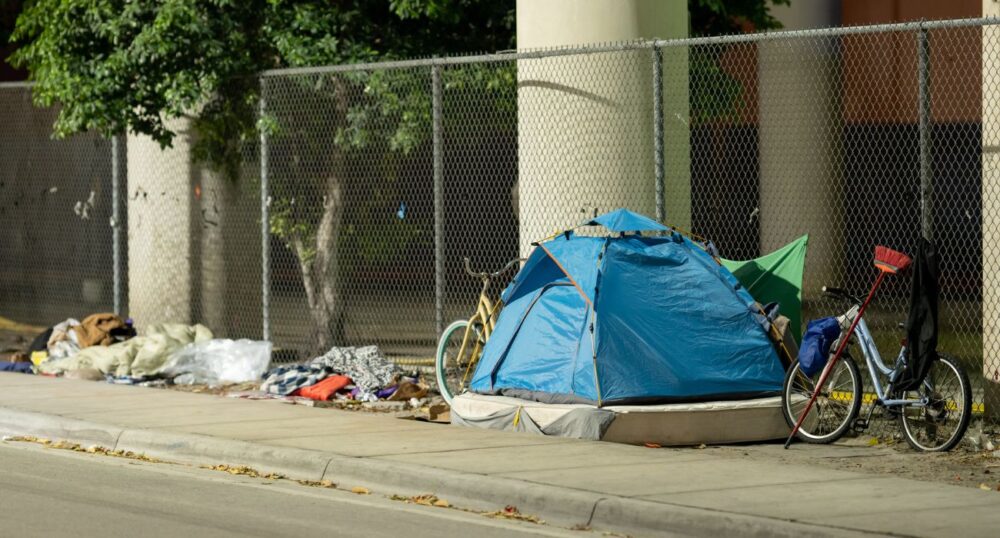Homeless shelters are becoming a center point in the Irving City Council District 4 runoff race between candidates Luis Canosa and Susan Motley.
“If the homeless shelter had been approved, Irving would be on a path to seeing a big surge in homelessness,” Canosa said in an interview with The Dallas Express.
“The fact that my opponent considers it a ‘shame’ that building a homeless shelter in Irving was defeated by just one vote proves that she is out of touch with the residents of District 4,” he added, referring to a prior attempt at getting such a project off the ground.
“Families move to Irving instead of Dallas because the magnitude of certain problems is much smaller in the suburbs. It doesn’t make sense for Irving to use its limited resources to open a homeless shelter so costly that the $3 million [Department of Housing and Urban Development] grant would disappear like a drop in the bucket and leave the taxpayers holding the bag,” he said.
He warned that homeless shelters attract anti-social behaviors, including drug addiction, crime, and mental illness.
“We need to use law enforcement to arrest criminals dealing drugs and to restrict panhandling in areas where it is unsafe to do so. We don’t need to invest tens of millions of taxpayer dollars to put in place ineffective programs that will just serve as magnets for the homeless of Dallas,” he added.
Polling by The Dallas Express has found that more than three-fourths of Dallas residents are dissatisfied with the state of vagrancy and panhandling in their neighborhoods and throughout the city. Respondents, however, indicated their support for a “one-stop-shop” model of homeless services like in San Antonio, where Haven for Hope has reportedly reduced unsheltered homelessness in San Antonio’s city center.
Motley staked out what appeared to be the opposite position from Canosa in a candidate questionnaire.
When asked, “What is your position on a congregate shelter for the homeless in Irving?” Motley started her response by discussing her need for more information on certain types of homeless centers, including congregate housing facilities.
She also linked to a video from a city council meeting where city staff spoke positively about using grant dollars to create a homeless shelter in Irving.
“While it would not solve homelessness in Irving, it might help, yet many (but not all) of our existing leaders seemed not to want to use available funds for this,” Motley said.
DX reached out to Motley for clarification of her position on the matter. She did not respond by the time of publication.
An unused federal HUD grant of approximately $3 million has partly driven the debate about homelessness in Irving.
City staff have repeatedly raised the issue and suggested various ways homeless shelters could be constructed. Council members like Dennis Webb have continued to support this action despite overtures from the council majority in the opposite direction. Some, including the mayor, have favored contracting for a more modest domestic violence program rather than pursuing what he sees as a long-term fiscal liability for the city.
The City of Irving used to have a contracted domestic violence shelter vendor. However, Brighter Tomorrows suffered major damage during the blizzard that hit North Texas in early 2021, which disrupted operations for a period. Later, the outfit closed its supporting thrift stores and its voicemail states that they have ceased all services.
Domestic violence shelters are common in cities like Irving. Unlike homeless shelters, where the effect on reducing crime is purportedly minimal, many argue domestic violence shelters prevent crime by allowing victims a place to flee before repeated or more serious incidents occur.
The council has never reached a final decision, and the question of what to do with the federal taxpayer money remains outstanding. Only an informal, tentative earmark deal is currently in place to redirect the HUD grant to a domestic violence shelter project.
Phil Riddle, the outgoing council member that either Canosa or Motley will replace, voted in favor of the homeless shelter project. If Canosa wins, there will be a six-vote supermajority against the shelter. Electing Motley would likely further solidify the four-seat coalition that supports the shelter.
Canosa is a young businessman, philanthropist, and professional violinist. He is running on a platform of reducing crime and homelessness, bringing high-paying jobs to south Irving, “protecting the innocence of children,” promoting the construction of single-family housing, and opposing the construction of a new Irving City Hall.
Motley is a lawyer and former partner at Wood Weatherly Trial Law in Denton, according to her website. Her platform lists just three issues: fiscal responsibility, reliability in city services, and promoting public safety.
After facing a crowded six-person field in the May 4 elections, the duo advanced to the runoff. Canosa currently took the lead, winning 33% of the vote compared to Motley’s 26%. Fewer than 2,500 votes were cast in the entire race, according to Ballotpedia.
Early voting in the Irving City Council race begins on June 3 and continues through June 11. Election day is Saturday, June 15.

